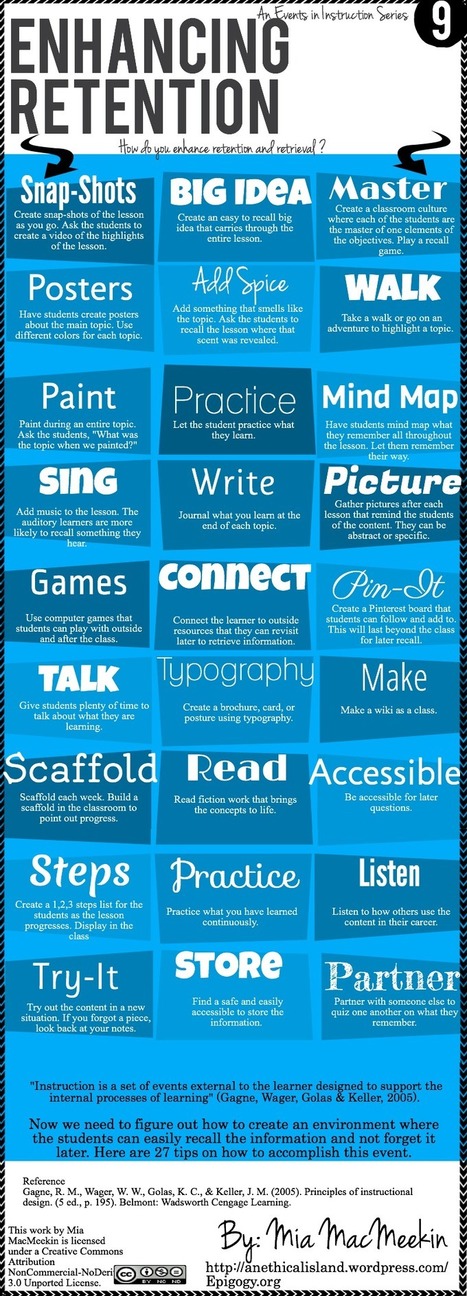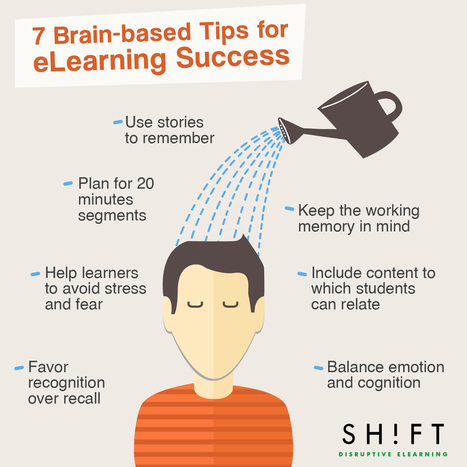Actually, a new study shows that the opposite may be true, says Daniel Willingham; it depends on teachers’ perceptions.
Get Started for FREE
Sign up with Facebook Sign up with X
I don't have a Facebook or a X account

 Your new post is loading... Your new post is loading...
 Your new post is loading... Your new post is loading...

Mel Riddile's curator insight,
April 15, 2014 11:22 AM
Growth Mindsets:

Mel Riddile's curator insight,
April 23, 2014 3:57 PM
Key Points for School Leaders The fear of failure and subsequent reprisals keeps many of our staff members from taking risks. Implementing new, college- and career-ready standards, new technology, integrating literacy into content areas, and using performance assessments all require significant learning and experimentation. After all, no one has ever implemented these standards. School leaders must create a school culture in which it is okay to make a mistake. How do we do that? By "reframing" the concept of failure.

Mel Riddile's curator insight,
April 22, 2014 1:05 PM
Key points for school leaders:
The Bottom Line "there are fundamental strategies schools can focus on to dramatically raise the likelihood that students will be emotionally engaged in the classroom on any given day." Wiggins asks, "Instructional leaders, do you get this? Or is a lack of imagination and leadership causing you to passively accept a culture of impersonal “coverage” and test-prep paranoia instead of a culture devoted to engaged learning at worthy and personalized work?

Mel Riddile's curator insight,
April 30, 2014 11:48 AM
Years ago I too bought into the idea of Learning Styles, but I learned through years of professional practice that, while students had learning preferences, those often changed with context. In addition, implementing learning styles in a classroom was impractical and ineffective. So, what I ended up doing was using what is now referred to as Universal Design for Learning (UDL), which calls for multiple forms of input and output. For the best explanation of the topic read Dan Willingham's "The Myth of Learning Styles" http://www.changemag.org/Archives/Back%20Issues/September-October%202010/the-myth-of-learning-full.html and "Why Learning Styles Don't Exist" http://neurobollocks.wordpress.com/2013/05/23/why-learning-styles-dont-exist-by-daniel-willingham/ |

Mel Riddile's curator insight,
April 15, 2014 10:59 AM
Growth Mindsets:

Mel Riddile's curator insight,
April 22, 2014 12:13 PM
Key Points for School Leaders:

Mel Riddile's curator insight,
May 1, 2014 9:01 AM
While these are "tips for e-learning", they apply to all learning and instruction. |


































"...time spent on instructional leadership was not associated with student learning outcomes. But once “instructional leadership” was made more fine-grained, the picture changed.
Time spent coaching teachers — especially in math — was associated with better student outcomes. So was time spent evaluating teachers and curriculum.
But informal classroom walkthroughs — the most common activity — were negatively associated with student achievement. This was especially true in high schools.
I scooped this article because I have recently experienced a new administrator who is much more visible and who visits my classroom frequently. But the author reports that more frequent classroom walkthroughs actually is negatively associated with student achievement. This is especially the case if these visits are not opportunities to provide meaningful feedback. Time spent coaching teachers is an activity that has benefit.